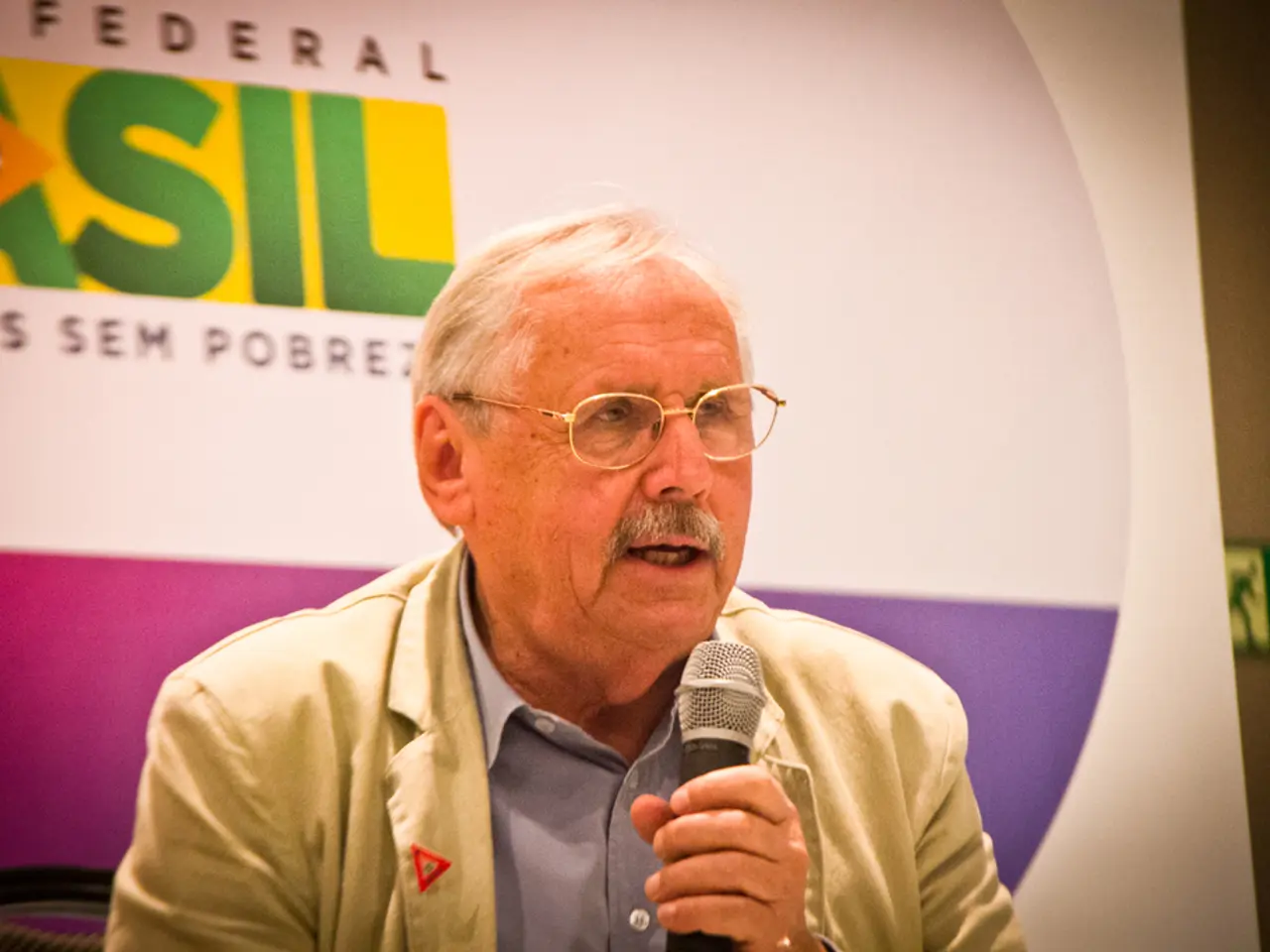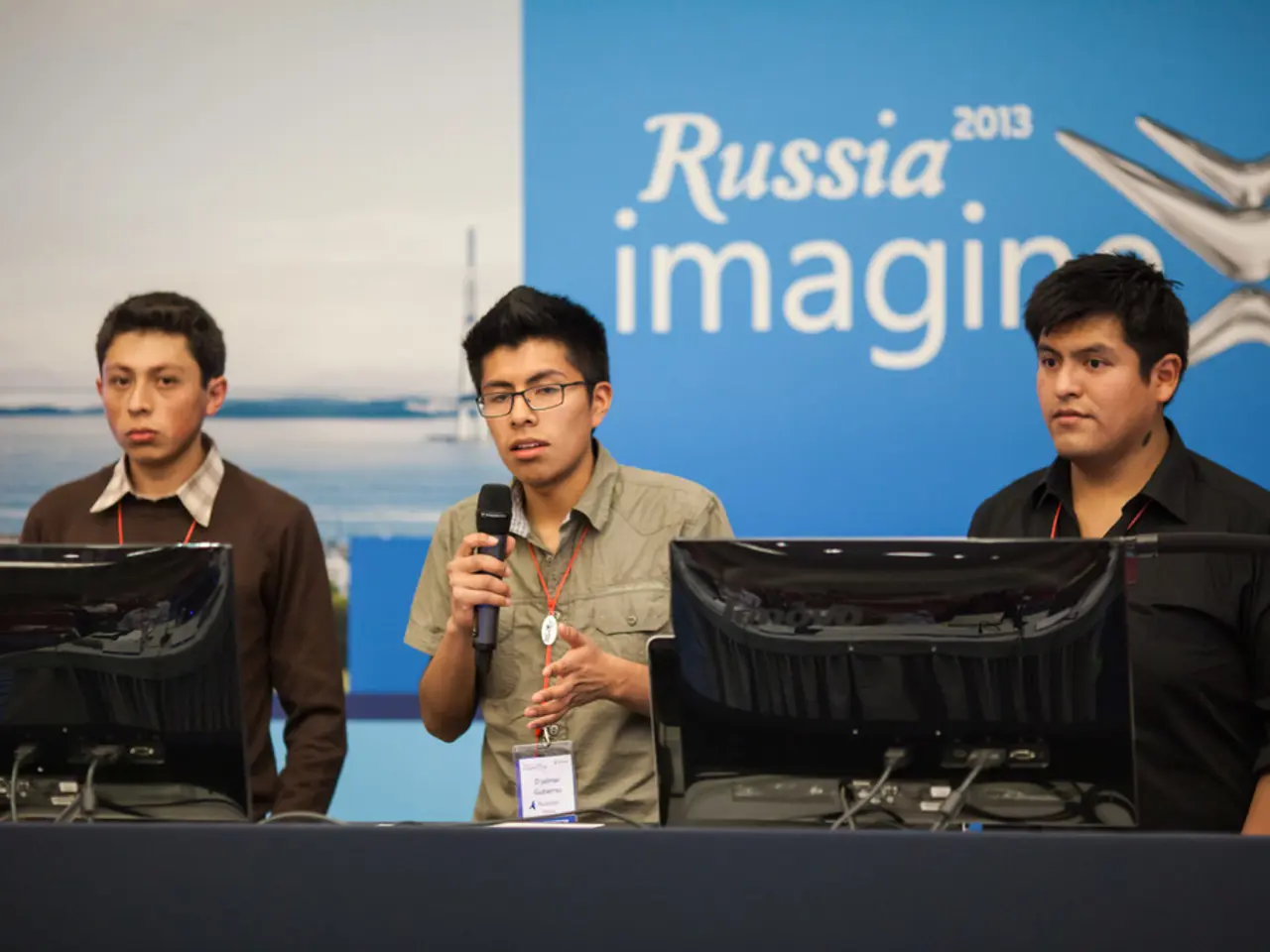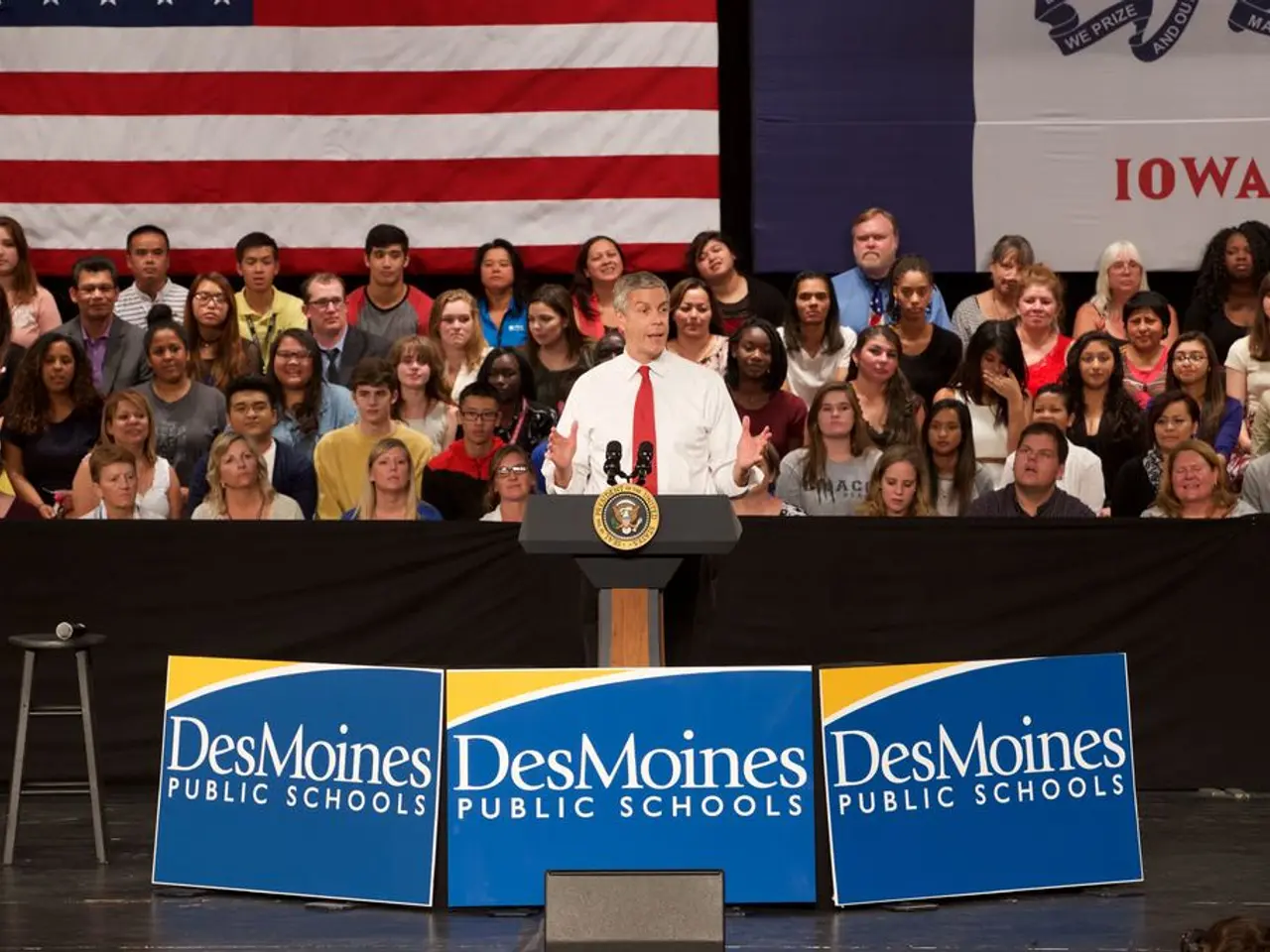"Exploring the 2022 Kyiv Conflict: An Academic Discussion"
In the heart of Europe, the Battle of Kyiv unfolded as a pivotal event in the Ukrainian-Russian conflict, showcasing the resilience of civilians and military forces against seemingly insurmountable odds.
The invasion by Russian forces on February 24, 2022, aimed to capture Kyiv, the capital of Ukraine. However, the Ukrainian forces and the city's civilian population displayed remarkable determination, successfully defending the city against what was believed to be the second most powerful military in the world.
The Urban Warfare Project Podcast, available on Apple Podcasts, Stitcher, Spotify, TuneIn, or your favourite podcast app, offers a comprehensive account of the Battle of Kyiv and its aftermath. John Spencer, a renowned expert, recently visited Ukraine and gave a lecture on the major events, key turning points, and lessons learned from the battle.
One of the most significant events was the aerial attack on July 31, 2025. Initially reported as 300 drones and 8 Iskander-K missiles, the attack was later revised to involve over 500 drones and multiple cruise missiles. The indiscriminate targeting of civilians marked a devastating escalation in Russia's strategy of terrorising civilian populations.
The scale of the attack, with its initial 300 drones and 8 Iskander-K missiles later revised to 539 drones and 11 missiles, represented a significant escalation in Russia's strategy of terrorising civilian populations, aiming for indiscriminate damage. Air raid sirens and explosions affected civilian infrastructure and morale deeply.
President Zelensky directly linked the timing of the strikes to a phone call between Trump and Putin, framing the attacks as "deliberately massive and cynical," underscoring the geopolitical tensions influencing the battle's dynamics. This attack underlined Russia's evolution into what Ukrainian voices called a "terror-state," likening its tactics to those of Al-Qaeda in Europe.
Besides direct combat events, there were efforts in Kyiv to reclaim and adapt urban space amid conflict. "Tactical Urbanism" initiatives and community-driven projects to restore and improve public spaces even during war showcased the resilience of civilians and their adaptive use of urban space under siege conditions.
The Battle of Kyiv demonstrated the growing importance of urban air defence against large-scale drone swarms and missile attacks, highlighting the challenges of interception and the need for robust, scalable defensive measures for civilian centres. The conflict revealed the psychological and societal impact of deliberate civilian targeting, reinforcing the understanding that modern urban warfare is as much about terror and morale as about conventional military objectives.
The success of grassroots urban projects during conflict illustrates the importance of community cohesion and adaptive use of urban space, even in wartime, which can contribute both to civilian morale and to the broader social infrastructure necessary for resilience. Diplomatically, the timing and geopolitical interplay around the battle reflect the ongoing complexity of political negotiations impacting military realities, as shown by Zelensky's framing of external political communications in the context of Kyiv's defence.
In summary, the Battle of Kyiv was marked by dramatic escalation in Russian attacks focused on overwhelming urban defenses through drone/missile barrages, the effective resistance and adaptation by Kyiv's defenders and civilians, and the broader implications for urban warfare tactics and psychological resilience in 21st-century conflict.
John Spencer's lecture on the Battle of Kyiv provides valuable insights into the events, turning points, and lessons from the battle. It is a must-listen for anyone interested in the Ukrainian-Russian conflict and its key events. It is recommended to subscribe to the Urban Warfare Project Podcast and leave a review or rating if you are enjoying it.
The Battle of Kyiv, a pivotal event in the Ukrainian-Russian conflict, showcased the Ukrainian military's resilience in the face of Russia's warfare tactics, particularly during urban warfare. The aerial attack on July 31, 2025, involving over 500 drones and multiple cruise missiles, marked a devastating escalation in Russia's strategy of terrorizing civilian populations. John Spencer's lecture on the Battle of Kyiv offers valuable insights into the events, turning points, and lessons learned from the combative urban scenario.







